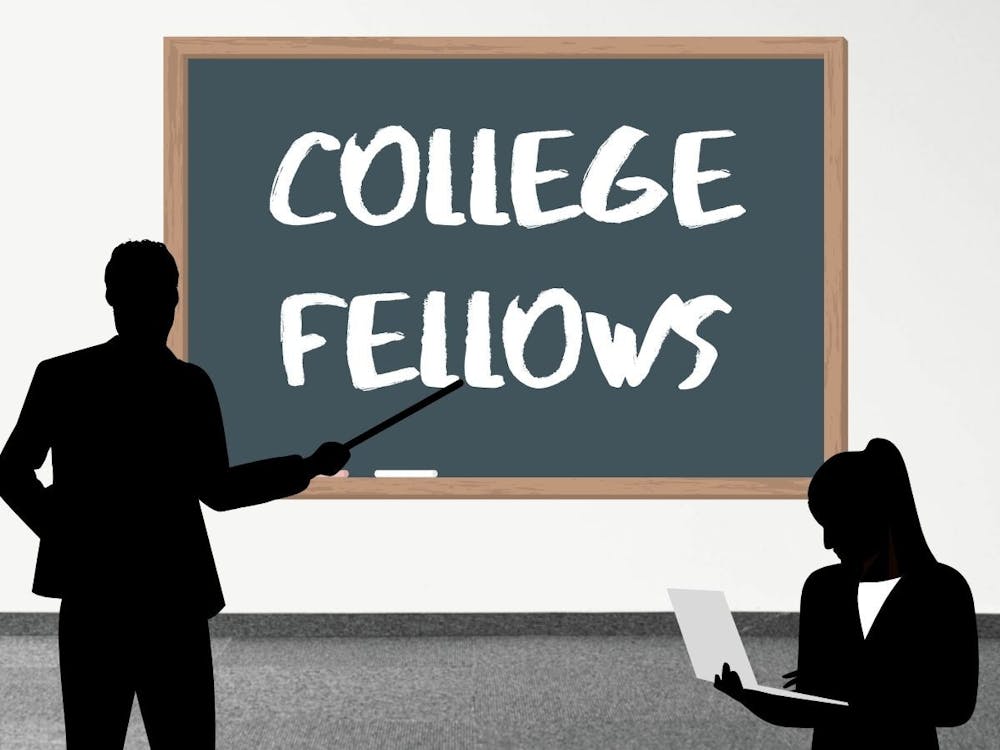Editor's note: University of Richmond College Fellows are professors paired with residence halls to develop programs and build bonds with students outside the formal classroom setting. This column is an opportunity for College Fellows to share their experiences and discuss some of the issues — both difficult and light-hearted — that they experience on campus with students at UR.
“Who are you?”
That was one of the first lines I savored when I saw the trailer for "Star Wars: The Force Awakens" some four years ago, to which the heroine of the story, a young woman named Rey, answers:
“I’m no one.”
Throughout this new "Star Wars" trilogy, Rey attempts to discover the identity of her parents, in addition to her life path, which exposes her to elements of the dark side -- that part of herself to which she is attracted and yet afraid -- as well as to the tutelage of a mentor, an aging Luke Skywalker. Along the way, Rey encounters Kylo Ren, a torn soul who claims Rey’s parents were “filthy drunk traders” who sold her off “for drinking money.” Kylo Ren pressures Rey to join his plans, even if it’s not what she really wants to do. Talk about peer pressure.
The subject of image and identity has been on my mind a lot these days. The University of Richmond has undergone a branding campaign over the past two years, seeking to shape and define the school’s optics -- how others see us, in rankings and otherwise.
I’ve participated in the branding campaign as I care a lot about our school’s image and I want to promote it. And heck, I’m vain! I like to be featured on campus media. A common phrase, “it starts within us,” has been promoted. This branding makes me wonder if we can ask the same question for UR as was posed to Rey.
“Who are we?”
The question becomes more complex when I reflect on the recent controversies about AsiaWeek at UR. It’s led to soul-searching from students and faculty, prompting us to think more deeply about the nature of Asian identity and how it’s portrayed across campus and in the West.
The question becomes more layered when I consider the long history of racial inequality in the Commonwealth of Virginia, going back hundreds of years. The question is seen in the debate over Monument Avenue, over whose history is worth telling. The question is asked but amidst silence when the most recent sexual assault on campus is issued in a timely warning email and few say a word. So many colleagues on campus want more acknowledgement of the issue, but sexual assault doesn’t look good for our branding and promotion, even though it’s a deep reality of the American experience.
So, who are we?
Every few weeks, in the course of conversation, a student will share with me that the image of UR that was promoted on the campus tour as a prospective student does not seem to align with their experience. It’s not a clear articulation, but a gut-level expression that something is off.
Enjoy what you're reading?
Signup for our newsletter
It’s not that the university isn’t trying -- it is -- and we have some brilliant campus administrators taking great strides in diversifying the student body and connecting with the community in civic engagement. And one-on-one, I am thankful that the experiences I have with students, faculty members and staff members lead to moments I consider a “natural high.” I feel good knowing that I am doing what I can to nurture the lives of my students. Teaching here is a gift, hands down.
One-on-one, so many of us shine brightly and admirably. But sometimes (oftentimes?) I worry that we as a campus, can sometimes get stuck in a kind of groupthink. Or, if there’s a challenging problem about a vulnerable student, we might pass the buck. Something about the shape of the structure of the institution may, at times, inhibit us from being our very best.
To what extent might UR have a dark side, like in the "Star Wars" universe? What values do we hold? How much might “shadow values” define our real experience? If so, how we do find our better selves and express who we truly are? And how much can we do this publicly with vulnerability? How might we do this in a way that helps with our branding? Is there such a thing as a safe public space?
I think we can find more of our true selves by speaking out, publicly, with civility and humility. To speak our truth.
I feel a lot of truth was spoken over the past few days on the controversies over AsiaWeek. But there’s so much more truth to be spoken on campus, and publicly. We don’t have many town halls where we can all congregate and deliberate and share our hearts and spirits.
Those spaces (like this column) seem to be more online these days. The challenge with online conversation is that it’s inherently disembodied. You can’t hear my voice, or its tone, while reading this essay. And you can’t see and read my body language either. And all that makes it harder if we want to be seen and heard plainly and fully. Authentically.
The more voices we can share and express, unique with warts and all, the more powerful we can be.
So, who are we?
Monti Datta is an associate professor of political science. Contact him at mdatta@richmond.edu.
Support independent student media
You can make a tax-deductible donation by clicking the button below, which takes you to our secure PayPal account. The page is set up to receive contributions in whatever amount you designate. We look forward to using the money we raise to further our mission of providing honest and accurate information to students, faculty, staff, alumni and others in the general public.
Donate Now



